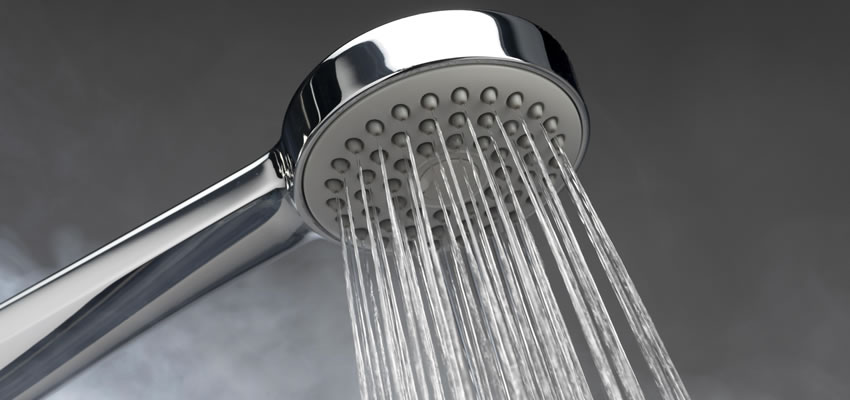What is ACOP L8 & What Does It Say About Controlling Legionella?
 The Health and Safety Executive Approved Code of Practice L8 (ACOP L8) is a key document, offering essential direction and guidance to help business owners and those responsible for workplace safety manage the risks associated with legionella and Legionnaires’ disease.
The Health and Safety Executive Approved Code of Practice L8 (ACOP L8) is a key document, offering essential direction and guidance to help business owners and those responsible for workplace safety manage the risks associated with legionella and Legionnaires’ disease.
In this guide the water safety specialists at Legionella Control International help to demystify the ACOP L8 to explain what it is, its special legal status, how to interpret it, and the role of the duty holder and responsible person.
A version of this guide to the HSEs ACOP L8 and how to interpret it first appeared in Legionella Control International’s newsletter. To get it in your inbox, sign up for free here.
Controlling legionella in your workplace is a legal requirement
If you own, run, or are responsible for a business in the UK, you must know what you need to do regarding the control of legionella in water systems that come under your control. Legionella bacteria are found in natural water sources, but they also find their way into manmade water systems, both hot and cold. This means it is necessary to take steps to be sure the water systems in your premises are safe to use.
What is legionella bacteria?
Legionella bacteria can cause Legionnaires’ disease, a type of pneumonia. While anyone can catch it if they inhale the bacteria – usually via water vapour or fine droplets suspended in the air – some people are more prone to serious illness. Those who smoke, older adults, and people with lung conditions or impaired immune systems are all at greater risk of developing it. The same bacterium can also cause Pontiac fever, a less serious illness. The latter doesn’t usually require treatment, but it is essential to get help if you suspect you might have Legionnaires’ disease. Antibiotics are usually given to treat Legionnaires’ once the disease is confirmed.

How does ACOP L8 help you manage the risks associated with legionella?
ACOP L8 refers to the Health and Safety Executive Approved Code of Practice for Legionnaires’ disease: The control of legionella bacteria in water systems. If you are responsible for managing health and safety relating to the water systems at your business or place of work, this code of practice will be essential to follow. It offers guidance that will help you meet your legal requirements when assessing the risks from legionella bacteria, and how those risks can be controlled as they relate to your business. There are serious penalties for falling foul of health and safety laws, so getting up to speed with the ACOP L8 is vital.
ACOP documents have a special legal status; if you’re prosecuted for a breach and it’s shown you didn’t follow it, you’ll need to show you complied in some other way.
Why is an Approved Code of Practice or ACOP important to follow?
L8 is the Health and Safety Executives ACOP relating to the control of legionella in the workplace, but there are several other ACOPs out there designed to provide guidance on different safety related topics. The idea is to give the reader a framework to follow, something that will help them understand what they need to do to comply with all relevant regulations and laws.
If you follow the advice given in the ACOP you’ll be doing enough to comply with the law, although you can use alternative methods. However, ACOP documents have a special legal status and if you’re prosecuted for a breach of health and safety law, and it’s shown that you didn’t follow it, you will need to show that you have complied with the law in some other way or a Court will find you at fault.

In the case of L8 for legionella guidance, you’ll find out about conducting a workplace legionella risk assessment. You’ll also learn about controlling legionella risks, along with keeping records and checking the methods you have brought in to control the risks. ACOP L8 also covers the role of the duty holder and responsible person – who they are, how to choose someone for the role, and why they must be competent to take on that role.
How to read and interpret the L8 Approved Code of Practice
There is one thing to be aware of before you read through ACOP L8. As we mentioned earlier, there are legal aspects of the Code – elements that must be adhered to. These appear in bold text. You’ll then see guidance to help you understand each section, and this is written normally. This makes it easier for you to see what needs to be done, and to gain a better understanding of what each bold section means.
Do you need to follow ACOP L8 when controlling legionella?
There is no legal requirement to follow the ACOP L8, but if you decide not to, you must be able to show that you have complied with all current regulations pertaining to legionella control. Since the L8 Approved Code of Practice provides a framework to follow, including guidance on how to make sure your business is compliant, it makes sense to use it.
What does the duty holder need to do?
The duty holder has overall responsibility for making sure the water systems are safe to use. They can appoint internal people or employ external contractors to help with this, but it is still their responsibility to make sure everyone else involved is competent for the role they take on. For example, if you are the duty holder and you decide to use an external company to handle legionella risk assessments, you must be sure they are suitable to do so.
ACOP L8 guides you through the process of identifying all potential risks associated with the water system. You must also consider whether those risks can be removed or controlled. While removal is ideal, this is not always possible.
You must create a scheme of control whereby all legionella risks are properly managed. Regular monitoring helps to ensure risk management is working. Chemical water treatment can reduce the presence of legionella, and sampling and testing can determine the levels of legionella present at certain points in the system.
The duty holder must also appoint someone to become the responsible person. The responsible person will be responsible for making sure legionella bacteria is controlled in the system on a day-to-day basis. Again, this should be someone who is trained, qualified and competent to take on the role, and it can be someone from outside the business if no one employed there has the required skills and knowledge to do it.

ACOP L8 guidance provides the support you need to control legionella risks in your workplace
You can see that the Health and Safety Executives Approved Code of Practice L8 provides you with extensive information about legionella risk assessments. It also covers the role the responsible person will take on. Notes on the written control scheme and reviewing those measures are also provided.
In short, every part of the process of making sure your premises are safe with regard to the presence of legionella in the water systems is covered. Following the ACOP L8 document will provide you with extensive support and insight into what you must do to comply with the law, and is considered essential reading for those involved in the legionella control process.
Legionnaires’ disease is a serious, potentially deadly disease, yet it can be prevented if those in charge of buildings take the right steps to make sure that legionella bacteria does not get a chance to take hold. If it is left unchecked, it can quickly multiply and spread throughout a water system. This puts everyone in contact with that system at risk.
Penalties for ignoring health and safety laws can be serious. If you are in control of a building and you feel that you do not have the level of competency required to manage the risks, you can either upskill or employ a suitably competent and experienced company such as Legionella Control International that does. This will ensure all elements of ACOP L8 are adhered to and you stay the right side of the law.
World leading legionella control specialists
Legionella Control International help business owners and those responsible for legionella and water safety in the workplace. Our water management solutions support duty holders, the responsible person and others with responsibility for the control of waterborne pathogens including legionella bacteria; helping them to protect their staff, customers and others and so meet their legal and wider stakeholder responsibilities in this specialist area.
We deliver a full range of specialist services that includes legionella risk assessments, water sampling and testing, independent compliance auditing, City & Guilds training, Authorising Engineer (Water) services, expert witness support and other environmental risk management services that help keep people safe.
To speak with one of our legionella safety specialists call us today on 0330 223 36 86 or contact us here


